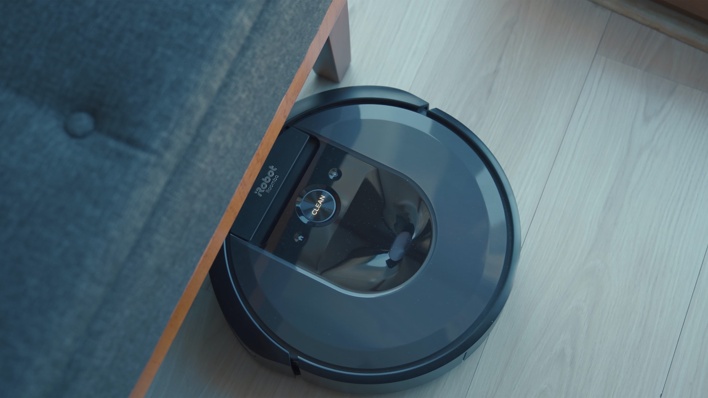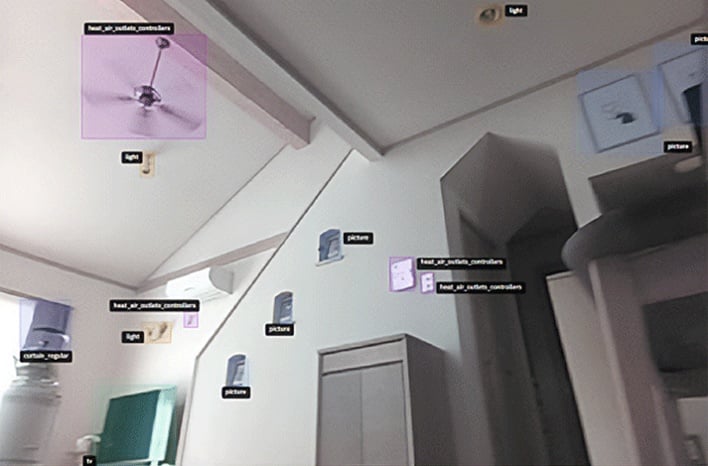It Sucks When Your Robot Vac Records You On The Toilet And Facebook Sees It, Wait What?!

iRobot’s automated Roomba vacuum cleaners have been navigating households for many years using infrared sensors. However, the company has equipped some of its more recent Roomba models with visible light cameras. As it turns out, these cameras can capture images of people in compromising positions, and these images can leak onto the Web during their passage through a global data supply chain. In 2020, an image showing a woman sitting on a toilet with her pants pulled part-way down her legs ended up on Facebook.
This photo is part of a set of fifteen images obtained by MIT Technology Review that were originally posted to Facebook groups, Discord servers, and other forums by Venezuelan contractors. These contractors worked for Scale AI, a San Francisco-based company that pays workers in poorer countries to label images for the purpose of training machine learning algorithms. Scale AI received over two million images from iRobot as part of a larger effort involving multiple data labeling companies to train algorithms for iRobot’s current and future devices.
According to iRobot, the images shared with the data labeling companies were taken by “special development robots with hardware and software modifications that are not and never were present on iRobot consumer products for purchase.” These development devices moved around the homes of iRobot employees and volunteers recruited by third-party data vendors. These individuals signed agreements allowing the Roombas to collect data, including video, while they were running. iRobot labeled each of these devices with a green “video recording in progress” sticker, but left it up to the employees and volunteers to “remove anything they deem sensitive from any space the robot operates in, including children.”
This photo is part of a set of fifteen images obtained by MIT Technology Review that were originally posted to Facebook groups, Discord servers, and other forums by Venezuelan contractors. These contractors worked for Scale AI, a San Francisco-based company that pays workers in poorer countries to label images for the purpose of training machine learning algorithms. Scale AI received over two million images from iRobot as part of a larger effort involving multiple data labeling companies to train algorithms for iRobot’s current and future devices.
According to iRobot, the images shared with the data labeling companies were taken by “special development robots with hardware and software modifications that are not and never were present on iRobot consumer products for purchase.” These development devices moved around the homes of iRobot employees and volunteers recruited by third-party data vendors. These individuals signed agreements allowing the Roombas to collect data, including video, while they were running. iRobot labeled each of these devices with a green “video recording in progress” sticker, but left it up to the employees and volunteers to “remove anything they deem sensitive from any space the robot operates in, including children.”

The company wasn’t willing to share the specific agreements signed by these individuals, so it isn’t clear whether they knew that images captured by the robots would be viewed by human data labelers. That said, the CEO of iRobot, Colin Angle, told MIT Technology Review that “iRobot is terminating its relationship with the service provider who leaked the images, is actively investigating the matter, and [is] taking measures to help prevent a similar leak by any service provider in the future.” Scale AI also made clear that sharing training images on social media is a breach of the agreement signed by its contractors.
Nonetheless, enforcing such an agreement can be difficult, especially when relying on contractors located all over the world. A competitor of Scale AI, Hive, also works with contractors, and MIT Technology Review asked the company’s CEO, Kevin Guo, about data labelers sharing training images on social media. The CEO responded, “These are distributed workers … You have to assume that people … ask each other for help. The policy always says that you’re not supposed to, but it’s very hard to control … we don’t think we have the right controls in place given our workforce.”
This problem extends way beyond iRobot and robot vacuum cleaners in general. Data labeling is an entire industry unto itself, and the demand for this service will only grow as machine learning improves and becomes more common. The cameras attached to iRobot’s development devices point at an upward angle, enabling the company to collect training images that include a wide array of household objects beyond just the furniture around which Roombas must navigate. It’s clear that iRobot and many other companies are working to train machine learning algorithms that will power the next generation of “smart” devices with more expansive capabilities. All these companies ask is that you invite their devices into your home and agree to the terms of service.
Nonetheless, enforcing such an agreement can be difficult, especially when relying on contractors located all over the world. A competitor of Scale AI, Hive, also works with contractors, and MIT Technology Review asked the company’s CEO, Kevin Guo, about data labelers sharing training images on social media. The CEO responded, “These are distributed workers … You have to assume that people … ask each other for help. The policy always says that you’re not supposed to, but it’s very hard to control … we don’t think we have the right controls in place given our workforce.”
This problem extends way beyond iRobot and robot vacuum cleaners in general. Data labeling is an entire industry unto itself, and the demand for this service will only grow as machine learning improves and becomes more common. The cameras attached to iRobot’s development devices point at an upward angle, enabling the company to collect training images that include a wide array of household objects beyond just the furniture around which Roombas must navigate. It’s clear that iRobot and many other companies are working to train machine learning algorithms that will power the next generation of “smart” devices with more expansive capabilities. All these companies ask is that you invite their devices into your home and agree to the terms of service.

